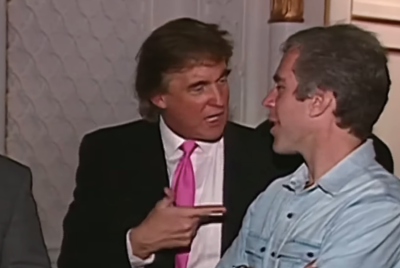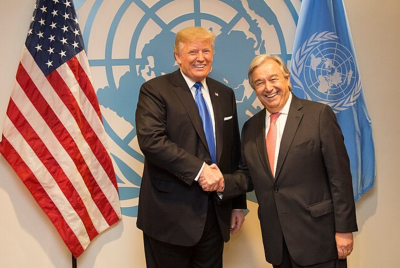Pressure Mounts On White House Over Release Of Trump's 'Disturbing' Call With Saudi Leader
Former NSC official Eugene Vindman calls for the White House to publish a 2019 Trump-MBS call transcript after controversial Oval Office remarks

A former White House national security lawyer says the American public deserves to hear the full content of a 2019 telephone call between US President Donald Trump and Crown Prince Mohammed bin Salman, and the demand has sharpened into a political crisis for the administration.
President Trump hosted the crown prince at the White House this week and publicly defended him against US intelligence findings about the 2018 killing of journalist Jamal Khashoggi. Republicans and Democrats are now trading accusations, and lawyers are quietly weighing whether any withheld records could be germane to oversight or legal inquiry.
The call at the centre of today's storm was reviewed by Eugene Vindman while he served on the National Security Council; he says its contents are 'shocking' and insists the transcript be released to the Khashoggi family and the American people.
Vindman Demands Transparency
Representative Eugene Vindman used the House floor to say that, during his NSC tenure, he reviewed two conversations he regarded as especially problematic, the July 2019 call with President Volodymyr Zelenskiy and a 2019 exchange with Crown Prince Mohammed bin Salman.
Vindman told colleagues the latter occurred in the aftermath of Jamal Khashoggi's murder and urged the President to publish the transcript. He framed the demand as both a moral duty to the Khashoggi family and a test of democratic accountability.
Vindman has posted the full text of his remarks and a video on his congressional website and social channels, providing a direct primary source for his appeal. He argued that, if precedent holds, 'the receipts will be shocking', deliberately evoking the political fallout that followed the Ukraine call that precipitated the President's first impeachment.
That comparison has intensified scrutiny because it ties a previously private exchange to modern standards of presidential transparency.
White House Defends Visit And Keeps Call Classified
The White House has published readouts and full remarks from the crown prince's visit, including the bilateral meeting and dinner, but it has not released any 2019 call transcript; the administration's official readouts emphasise bilateral cooperation, trade, defence, and investment, rather than the substance of previous private conversations.
During the Oval Office remarks on 18 November 2025, Trump dismissed questions about the crown prince's culpability in the Khashoggi killing and said the guest 'knew nothing about it', a comment that prompted immediate rebuke from human rights advocates and lawmakers.
The White House fact sheet accompanying the rapprochement underlines large commercial promises from Riyadh; a figure cited repeatedly by the administration is £459 billion ($600 billion) in Saudi commitments to invest in the United States. That economic framing is being offered as part of the administration's justification for privileging strategic ties over public disclosure. Critics say financial incentives cannot trump the need for accountability.
Political and Legal Stakes
If a transcript exists and contains material that contradicts public assertions by the President, its release could create legal and constitutional headaches as well as political consequences.

Vindman's public challenge is unlikely to be the last:,rights groups, foreign policy experts, and some members of Congress have already called on the administration to make any relevant records available. The comparison to the Zelenskiy call is politically freighted because it points to a concrete precedent where a private presidential conversation had major consequences.
The White House faces a narrow path. Releasing the full transcript could defuse accusations of concealment but would also expose diplomatic communications long treated as sensitive. Refusing risks persistent political damage, especially as the crown prince's visit rewrites a seven-year diplomatic posture that followed Khashoggi's murder.
For the Khashoggi family and press freedom advocates, the question is not merely political theatre, it is whether official silence constitutes yet another obstacle to truth and remedy.
A transcript would answer crucial questions about what was said, when it was said and whether official public claims align with private reassurances. Until then, the controversy will shadow both the Gulf rapprochement and the administration's claim that national interest requires discretion.
The demand is simple, if the call matters to the nation's conscience, the call should be shown to the nation.
© Copyright IBTimes 2025. All rights reserved.





















